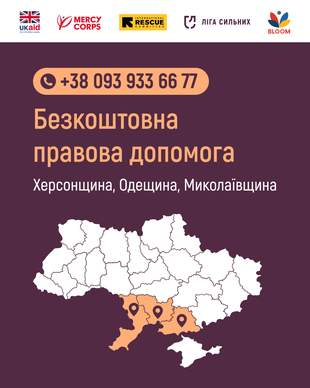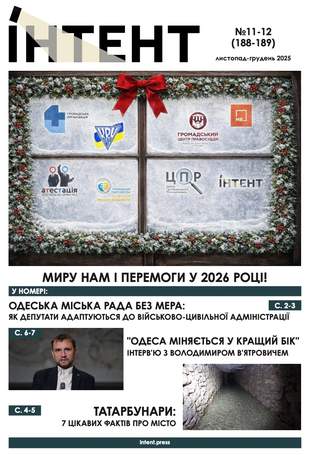Меню
Соціальні мережі
Розділи
Aug. 30, 2023, 8:42 p.m.
A ghost village: Russian occupiers bear personal responsibility
This article also available in English1661
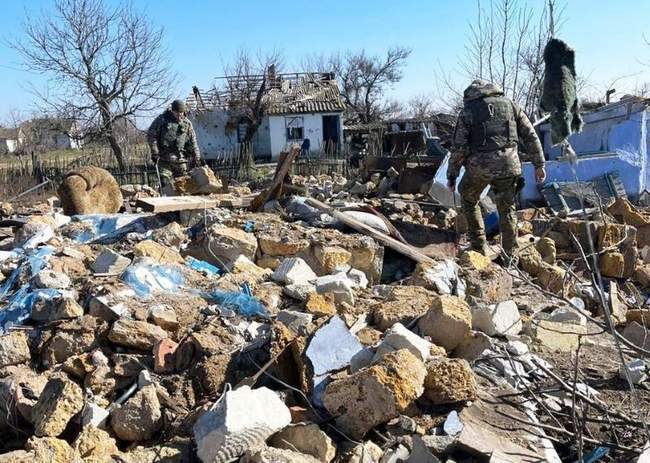
Photo: Police of Mykolaiv Oblast
From the initial days of the full-scale invasion, a part of the Mykolaiv Oblast fell under the control of the Rushists. November 10, 2022, is acknowledged as the official date of liberation for the region. The village of Ternovi Pody also endured months of occupation, during which the Russian military mined the entire settlement and devastated water sources. The "Center for Public Investigation" conducted inquiries to identify those responsible for these war crimes.
At the Epicenter of War
Ternovi Pody, a small village on the border of the Mykolaiv and Kherson regions, housed 70 people before the full-scale war. Presently, only six remain, as others fled. Another couple of civilians were killed by a shell in their own yard. During the battles for the south last fall, the unremarkable village found itself at the epicenter of bloody conflicts. Prior to that, the settlement was under the control of occupiers for an extended period.
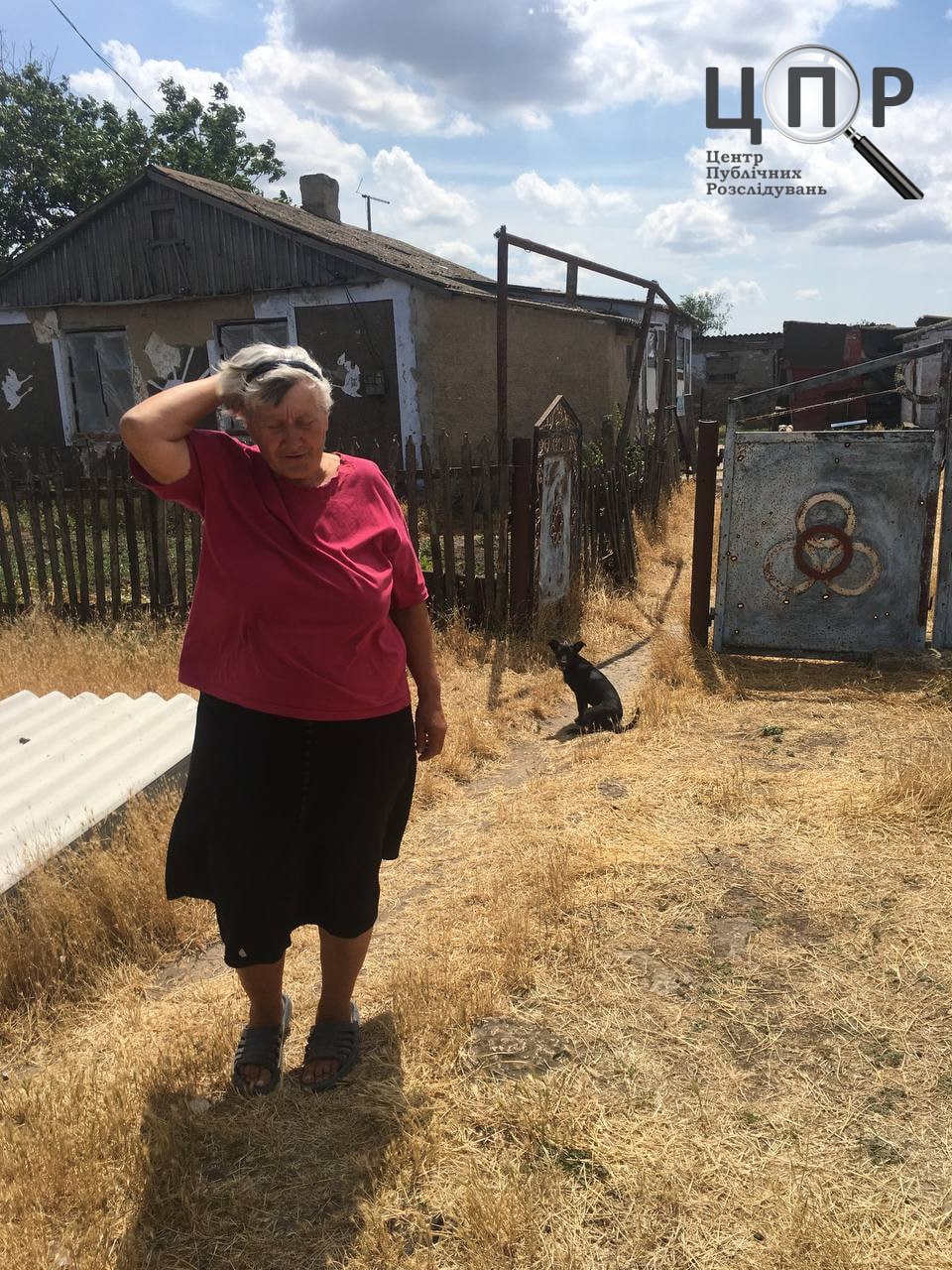 Nina from Ternovi Pody. Photo: Center of Public Investigations
Nina from Ternovi Pody. Photo: Center of Public Investigations
"They were there for a long, long time. Initially, they avoided entering the village, settling in the forest strips and behind the canal surrounding the village. As soon as our Ukrainian troops began to advance, they all fled from across the canal to the village. This occurred around September (2022)," says Nina.
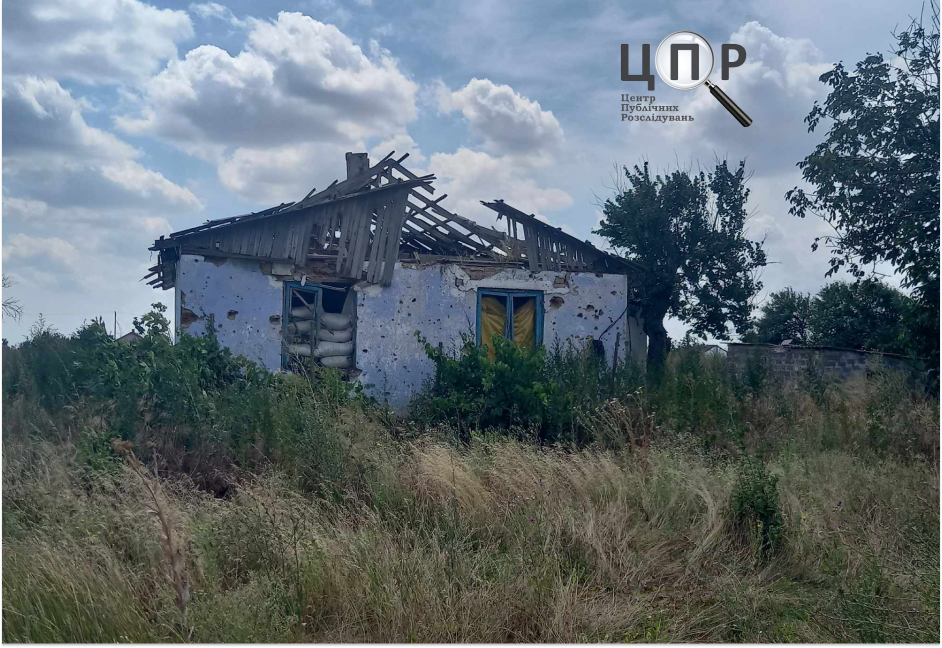 Home after the occupation. Photo: Center of Public Investigations
Home after the occupation. Photo: Center of Public Investigations
Ternovi Pody is only a few tens of kilometres from Kherson in a straight line, making the settlement crucial in operation to liberate Kherson from Russian occupiers. Since the beginning of September 2022, Ukrainian defenders have launched an active offensive in this region.
This information was corroborated by the so-called Russian soldiers. For instance, on September 5 of last year, the telegram channel "Voenkom Kotenok" reported the commencement of assaults in the area of Ternovi Pody. And by October 8, 2022, Kotenok, who resembles more a Russian soldier than a military commander, confirmed that fighting continued in the indicated area, with Ukrainian troops holding the operational initiative.
On October 31, the Institute for the Study of War analyzed the Ukrainian General Staff's summary and concluded: Ternovi Pody is under the control of our defence forces, and the offensive continues. Kherson and almost the entire Mykolaiv region were de-occupied in less than two weeks. Simultaneously, the village of Ternovi Pody was completely destroyed, like other settlements where fierce battles persisted.
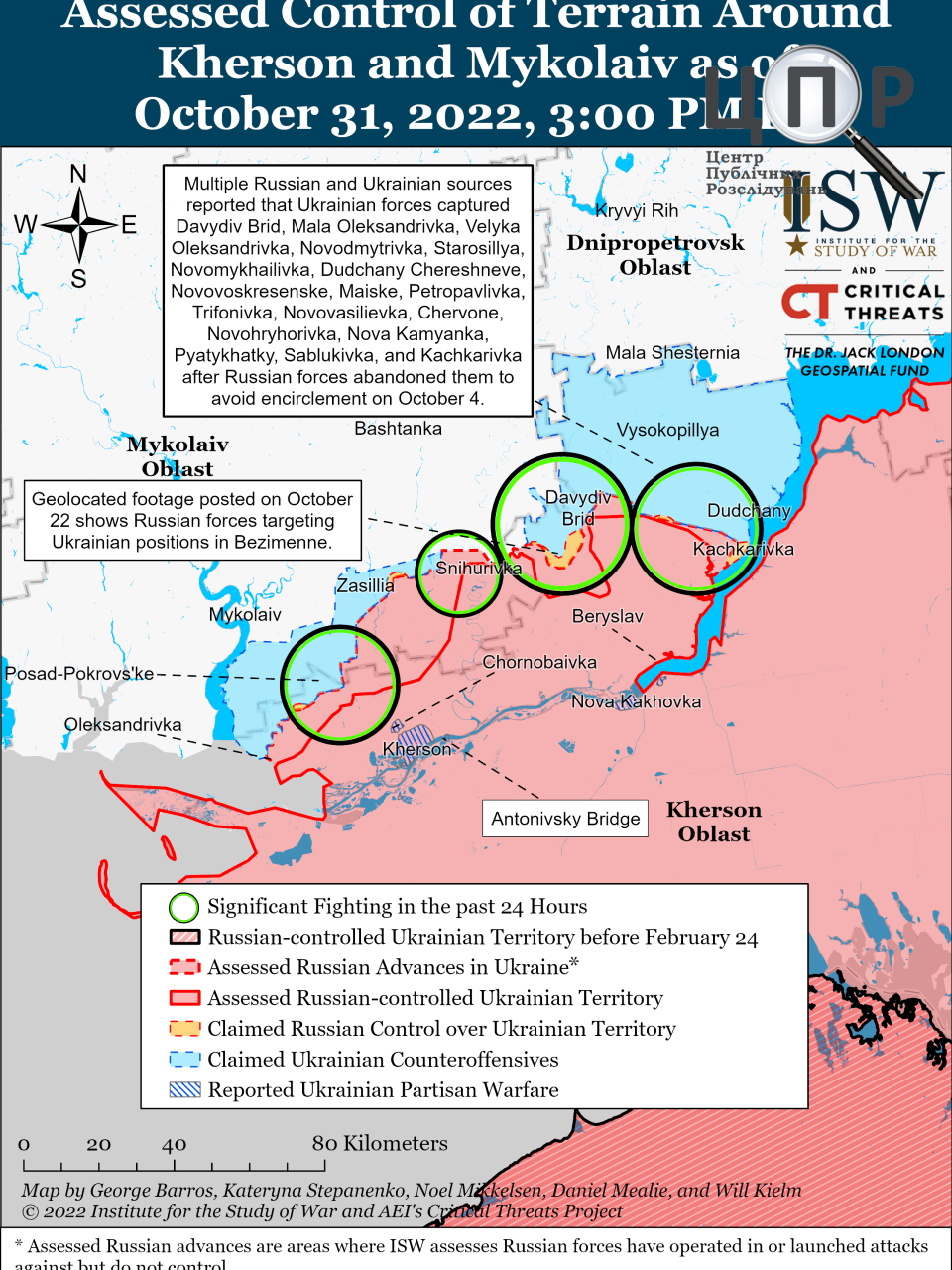 Picture: ISW
Picture: ISW
Postwar Life in Ternovi Pody
Nina and her husband returned to her native home after its liberation. Here, she manages a farm with dogs and cats that playfully chase after people. The windows in the house may be broken, but the walls and roof have endured, which is paramount. Civilization's benefits are limited to electricity and mobile communication, with gas stored in cylinders. Drinking water is scarce, and volunteers bring it.
"People lack water—none at all neither for drinking nor for everyday use. The main pipes are all broken, and the equipment has been bombed and looted. Before the upheaval, the village thrived. They had numerous farms, and people worked and enjoyed good living standards with decent salaries. They never complained; hardship only arrived with the orcs," describes life in the village, volunteer Natalya Chabanova.
Before the full-scale war in Ternovi Pody, every household raised livestock and cultivated gardens. Today, only a few houses remain in the nearly deserted village, giving it an eerie, ghostly appearance. Nina and her husband have taken in their neighbour Tatyana, whose home was obliterated by shelling and is uninhabitable.
"We bought a house in 2015, thinking it would serve as a dacha. However, now we have neither a house nor a dacha. It was bombed and destroyed. Those 'liberators' wreaked havoc—sheds, roofs, furniture, dishes, everything. I brought everything from the city—refrigerator and microwave. Now, I am left with nothing," shares Tatyana.
 Tatyana near her ruined home. Photo: Center of Public Investigations
Tatyana near her ruined home. Photo: Center of Public Investigations
Volunteers Natalya Chabanova and Oleksandr Ogorodnik make regular visits to the Mykolaiv region. Once or twice a week, they deliver food, water, clothing, dishes, medical supplies, and animal feed to the residents. They first visited Ternovi Pody in March 2023, finding only two residents at that time.
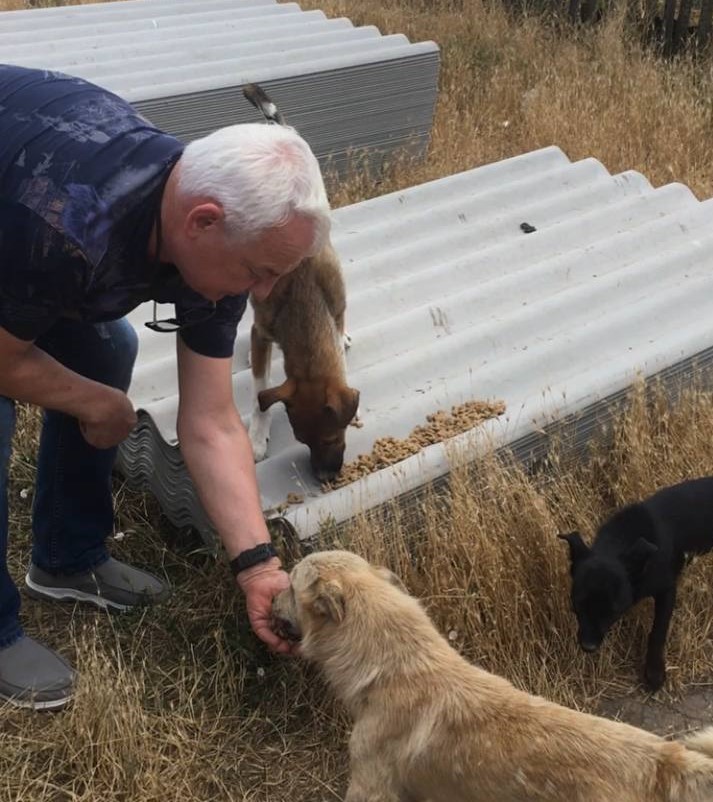 Volunteer Oleksandr Ogorodnik. Photo: Center of Public Investigations
Volunteer Oleksandr Ogorodnik. Photo: Center of Public Investigations
"The orcs stole appliances—washing machines, microwaves, refrigerators, TVs. They took everything they could. People were left with nothing," recalls Natalya Chabanova.
The Russian military repurposed residential buildings for fire points, trenches, and headquarters, leaving behind heaps of garbage, mines, grenades, and booby traps, posing risks even after the occupiers were ousted from the Mykolaiv Region.
 Photo: Center of Public Investigations
Photo: Center of Public Investigations
Nina, a Ternovi Pody resident, confirms that the village has not been entirely demined, and entering some houses remains a daunting prospect.
 Photo: Center of Public Investigations
Photo: Center of Public Investigations
"Houses were mined. Owners returned, hoping to reclaim them, but upon entering, they discovered mines meticulously disguised, with orcs planting mines under furniture. Gardens, landings, and fields are all mined, with numerous unexploded shells and rockets," says volunteer Natalya Chabanova.
War crimes of the occupiers
On March 3, 2023, the Mykolaiv Regional National Police reported the documentation of crimes committed by the Russian military in Ternovi Pody. Eduard Soloviov, the head of the police investigative department, stated, "During the routine inspection of the occupiers' locations, law enforcement officers discovered numerous destroyed houses, ambushes, ammunition, and other evidence of crimes committed by the military of the aggressor countries."
Currently, an investigation conducted by the Security Service of Ukraine is underway under Article 438 of the Criminal Code, specifically for "violation of the laws and customs of war". The identity of those who occupied Ternovi Pody and turned the village into ruins is yet unknown. However, efforts are being made to identify units of the occupiers, possibly collaborating with the so-called "Donetsk People’s Republic" ("DPR").
After the liberation of Ternovi Pody, russian propagandists produced a 30-minute film about the so-called defence of the village. In the film, they identify a "DPR" soldier from Makiivka with the call sign "Udav" as the one directing the hostilities. "Call sign "Udav", born in Makiivka, Donetsk region, started his career in the armed forces with the 'people's militia' of Donbas in 2014 and is currently the commander of a personnel battalion of the armed forces of the russian federation," the man says in the propaganda film.
The collaborator associated with the call sign Udav is identified – it is Yevhen Mykolayovych Melnyk, born in 1988. The "Myrotvorets" website lists his registration address in Makiivka, 1 Hrybnychenko Street, apartment 55. In 2014, Melnyk actively supported the occupiers, taking up arms and working at the Makiiv Cocking-Chemical Plant. He continued providing coke coal to metallurgical enterprises not controlled by Ukraine, possibly supplying products to the Russian Federation.
 Yevhen Melnyk. Photo: Myrotvorets
Yevhen Melnyk. Photo: Myrotvorets
On Vkontakte social media, Melnyk is registered under the name Yevhen Verzhbytskyi. Currently, his page consists of obituaries for last year's fighters, and he hasn't been online for over a month. According to GUR (Ukrainian Military Intelligence), as of 2016, Yevhen Melnyk was a part of military unit 08805 and served in the first motorized rifle battalion of the fifth separate motorized rifle brigade as a company commander. This terrorist formation, created in the autumn of 2014, is subordinate to the Southern Military District of the Russian Federation, with its centre in Rostov-on-Don, russia.
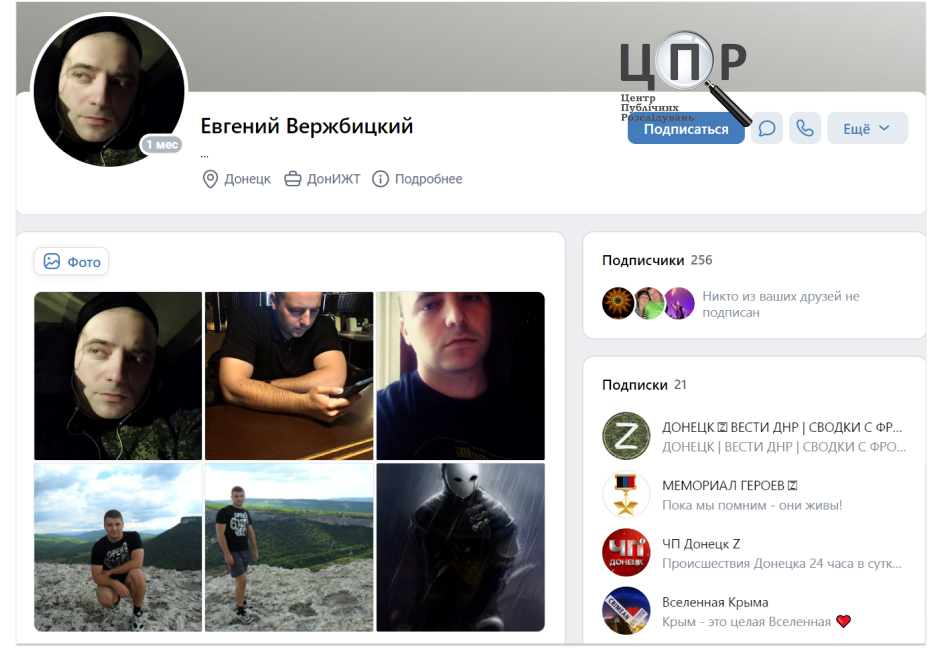 Screenshot from Vkontakte
Screenshot from Vkontakte
In the summer of 2021, a person signed as "Vash sutenyor (Your pimp)" on VKontakte published information about the recruitment of military personnel 08805, suggesting preparations for a significant conflict. The newly arrived militants were promised winter and summer uniforms, three meals a day, and cash support amounting to 24 thousand rubles per month, approximately USD 250 at that time.
Besides the "DPL" recruits, Mykolaiv Oblast was also occupied by regular troops of the Russian Federation.
Paratroopers from Crimea and Kostroma
Paratroopers from Crimea and Kostroma played a crucial role in the so-called defence of Ternovi Pody, as revealed in the propaganda film. Militant Yevgeny Melnyk disclosed the substantial assistance provided by units of the landing forces, ensuring contact on the right flank.
The Russian paratroopers supporting Donetsk militants in holding Ternovi Pody may belong to two regiments, namely the 331st Guards Parachute and 56th Guards Parachute Regiments. As of September 1, 2022, the Institute for the Study of War reported the destruction of the command posts of these Russian military forces by Ukrainian defence forces in the Kherson direction.
Since 2021, the 56th Guards Airborne Assault Regiment has been stationed in annexed Crimea, particularly in the city of Feodosia. This regiment occupied the south of Ukraine, including Kherson, moving from the Crimean Peninsula at the beginning of the full-scale war. The "Starokrymskyi" training ground is associated with the regiment. Unknown UAVs paid a visit to it in July, causing a massive ammo depot explosion.
Lieutenant Colonel Yuri Pitikov commands the 56th Airborne Assault Regiment and led the military formation in Feodosia in 2021. Although attempts were made to contact Pitikov via VKontakte, he seems to visit the platform infrequently. The remains of Russian soldiers found in one of the once-occupied houses in Ternovi Pody also support the presence of occupiers from Crimea.
 Screenshot from Vkontakte
Screenshot from Vkontakte
The 331st Guards Parachute Regiment, infamous for attacking Kyiv and occupying Bucha at the beginning of the full-scale invasion, has a grim reputation in Ukraine. After the liberation of Bucha, the world witnessed the brutality of crimes committed by Russian occupiers. The 331st regiment, which suffered significant losses in Ukraine, was led by Colonel Sergiy Sukharyov, who died near Kyiv. Sukharyov is linked to the shooting of Ukrainian soldiers near Ilovaisk in 2014 when Ukrainians were leaving through the agreed greed corridor. The regiment is based in the city of Kostroma.
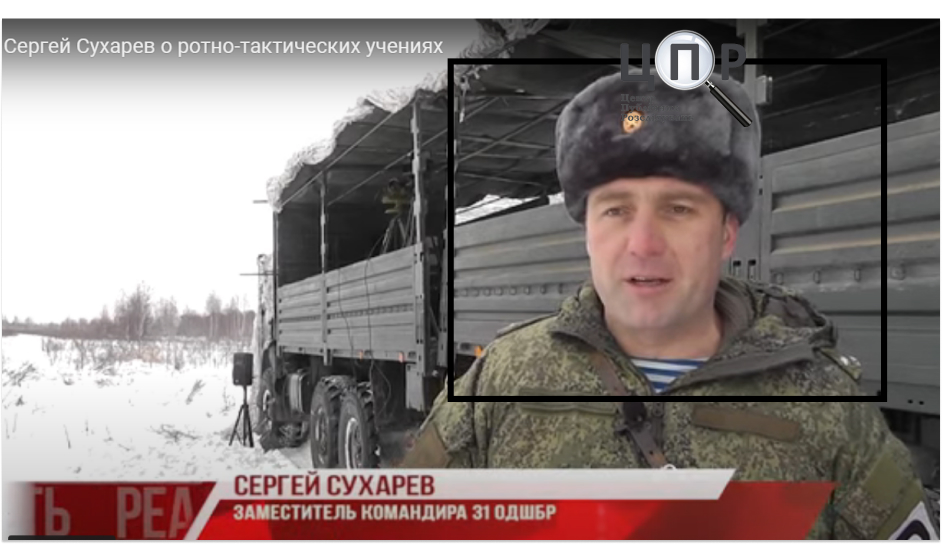 Sergiy Sukharyov. Screenshot from video
Sergiy Sukharyov. Screenshot from video
Russian Guardsmen from the North Caucasus and Krasnodar
Russian Guardsmen from the North Caucasus and Krasnodar
In Ternovi Pody, remnants left by the Russian military provide clues to their identity. One house, where locals believe Russian soldiers resided, bears an inscription on the wall: "Allah 30.09.22." Another room in the same house features a similar "Allah" inscription, while a different house contains the words "Zelensky Jackal." These inscriptions suggest that some of the occupiers in Ternovi Pody likely practised Islam. Among the discarded items in the village, water bottles originating from the Caucasus, specifically from Nalchik (Kabardino-Balkaria) and the village of Sirnovodske in the Chechen Republic, indicate that the invaders may have come from the Caucasus.
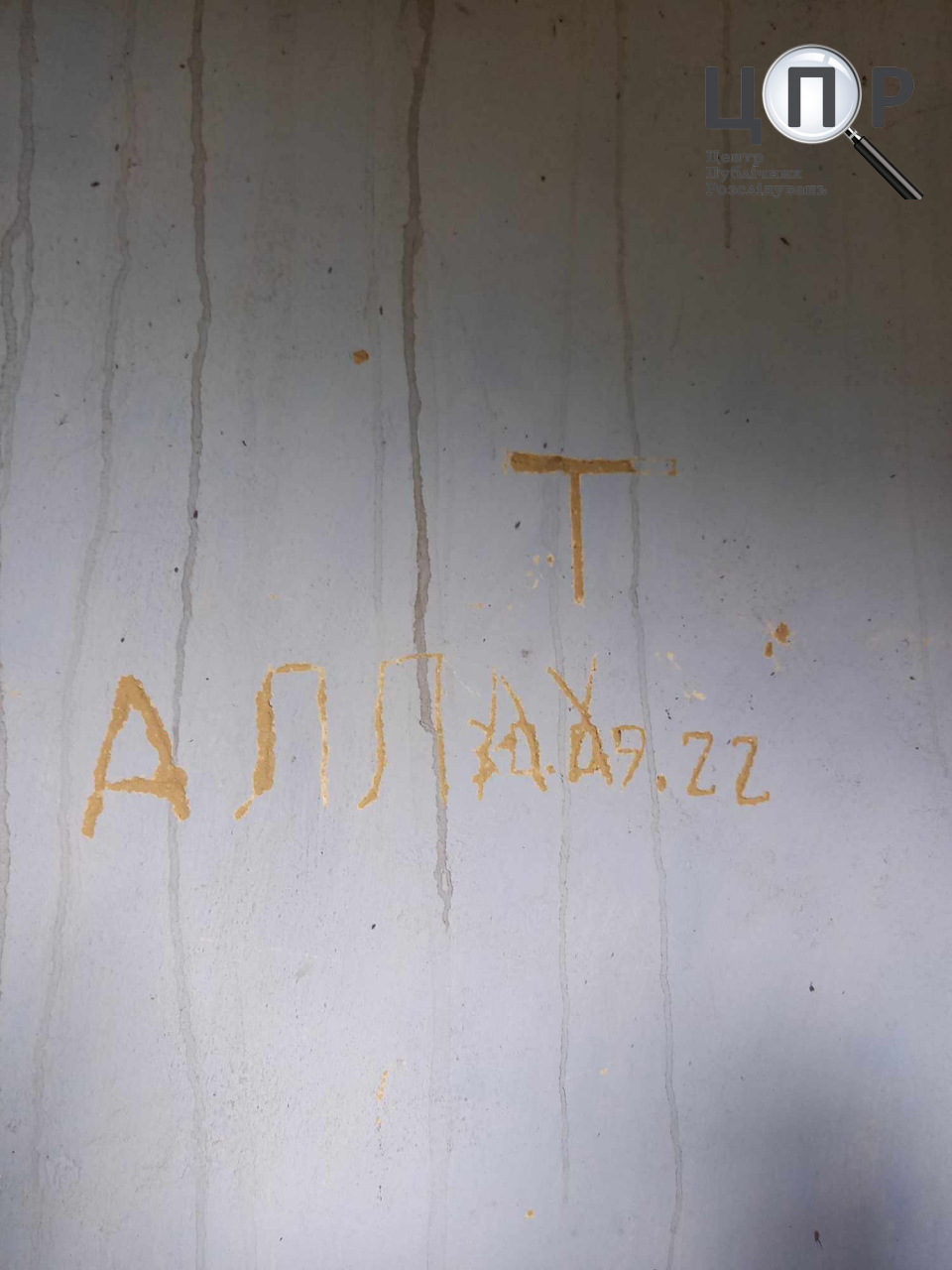 Photo: Center of Public Investigations
Photo: Center of Public Investigations
In a propaganda film showcasing the Russian military in Ternovi Pody, the footage reveals a motorcycle with the inscription "Minvody," referring to Mineralnye Vody, a Russian city in the North Caucasus in the Stavropol Krai. Analysis of news from Mineralnye Vody indicates that Russian Guardsmen are primarily deployed to the war in Ukraine from this region. For instance, in October 2022, Commander Oleksey M. from the Ministry of Defense's RusGuard special forces group, likely referring to Oleksey Mischenko, received an award for participation in the so-called "SMO".
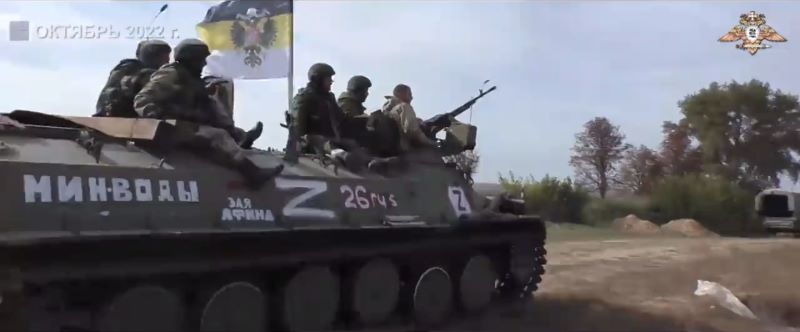 Screenshot from video
Screenshot from video
Additionally, an inscription "Storm-Yug" was discovered in one of the houses captured in 2022 in the Mykolaiv region. Within the structure of the RusGuard, a mobile special-purpose unit, OMON, known as "Storm South," is based in Krasnodar. The southern district of the RusGuard is commanded by Lieutenant General Igor Turchenyuk, born in 1959, who has been sanctioned by several countries for aggression against Ukraine. The RusGuard's southern district regularly announces awards for personnel distinguished in the so-called "SMO". Yet, details about the number and identities of awardees are often concealed.
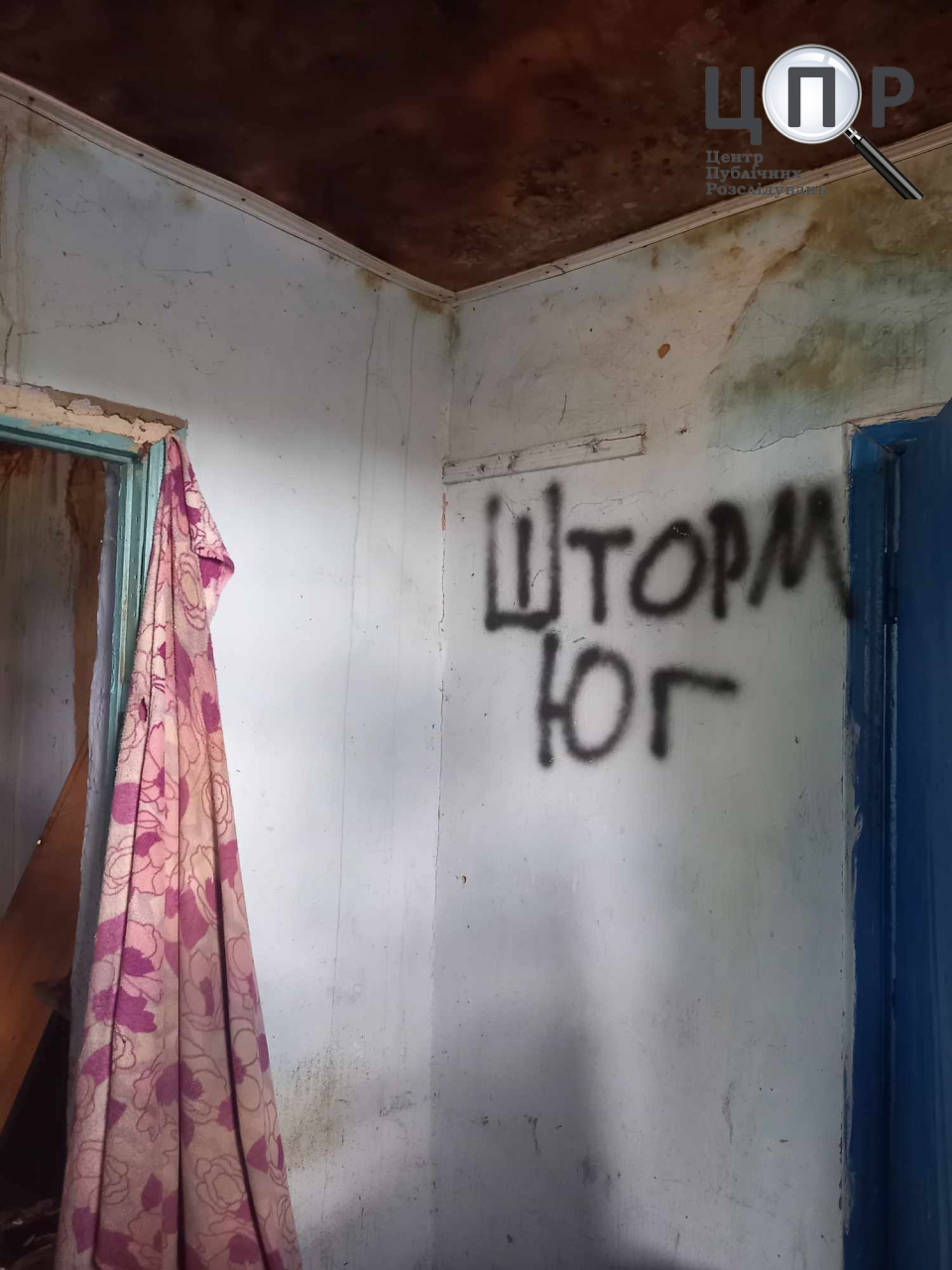 Photo: Center of Public Investigations
Photo: Center of Public Investigations
Thus, it is plausible that RusGuards from the Caucasus were also present in Ternovi Pody. The propaganda film concludes by noting that Russian military personnel received awards from leadership, including posthumously, highlighting the grim consequences faced by occupiers.
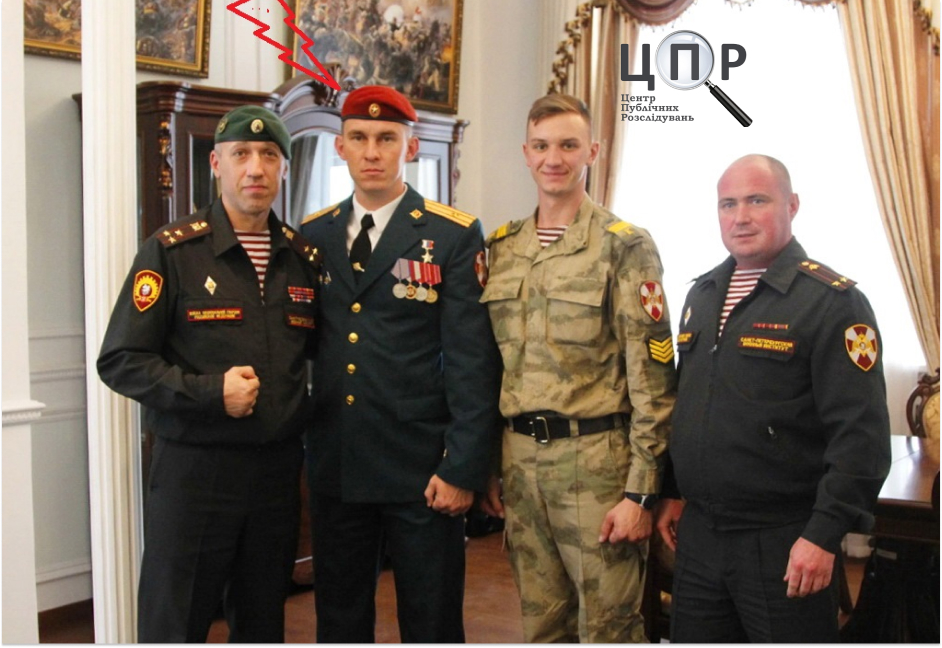 Oleksey Mishenko. Photo from open sources
Oleksey Mishenko. Photo from open sources
Hopefully, as of now, all occupiers are decorated posthumously.
Олена Чернишова
